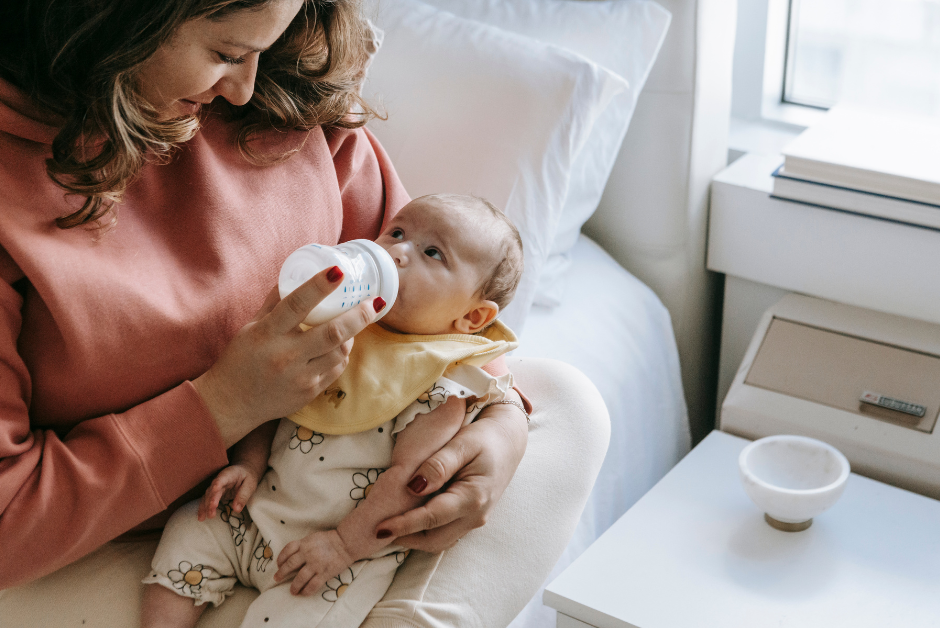Birthing a baby brings an extreme amount of change to a new mom’s life. With these changes, many moms experience heightened emotions - from intense joy to overwhelming sadness or anxiety. For many moms, this often only lasts for a short time (a few weeks at most). But, for approximately 15-20% of women, these emotions can intensify and last longer, resulting in either postpartum depression or postpartum anxiety.
Postpartum Depression vs Baby Blues
Unlike the “baby blues” (feeling sadness, anxiety, stressed, lonely, tired, or weepy), postpartum depression (PPD) is a serious mood disorder. Baby blues has been compared to “bad PMS symptoms” and it typically peaks at day 4 postpartum, lasting at most 3 weeks after you deliver. You may experience a lack of concentration or mood instabilities as you are transitioning to your new role in motherhood. One of the fundamental differences between PPD and the baby blues, is that these baby blues resolve on their own. After some time, your hormones will begin to adjust, and your mood will improve.
Postpartum depression does not go away on its own, and it lasts more than 3 weeks after delivery. In fact, PPD can strike at any point during your postpartum period. PPD interferes with your functioning; you may have overwhelming guilt, lack of interest in tasks, changes in your eating, trouble concentrating or feeling worthless about being a mom. You may feel incompetent or inadequate to care for your new baby, or you may have excessive, irrational worries.
PPD typically shows itself within 2-3 months of delivery, but may occur at any time. If you have a history of mental illness, or you’ve had PPD before, you are at a higher risk for developing PPD.
Women who also live in stressful home environments are at a higher risk for development. Additionally, if you are consistently, severely sleep deprived, or you have a baby who is experiencing colic, you are at a higher risk.
Postpartum Anxiety
Consequently, postpartum anxiety is not quite as common as postpartum depression, but often just as debilitating. Many women suffer from postpartum anxiety in silence, and never seek treatment because postpartum anxiety is not as widely talked about as postpartum depression.
Postpartum anxiety consists of racing thoughts, lack of concentration, excessive worrying, restlessness, irritability, insomnia, and/or changes in eating.
Postpartum anxiety often results in panic attacks, which can often have no warning signs. All of a sudden you have a deep, intense fear over something, and you are crippled by the worry. You may have physical symptoms such as difficulty breathing, increased heart rate, sweating, dizziness, or chest pain.
These panic attacks often come in waves and - an important thing to remember if you ever experience one - is that they cannot hurt you and they will eventually pass. There are multiple methods you can do (often taught by a psychotherapist) to help yourself cope through them or help yourself prepare for the onset of one.
What To Do If You Think You Have Postpartum Depression or Anxiety
The first thing you MUST do if you resonate with any of these symptoms is TELL someone! Anyone. That is always the first step, and even though it may be difficult, it’s the first step to recovery!
Contact your provider and schedule a visit to talk about your mood, there are a number of different treatment options you can discuss with your provider. Additionally, if you are experiencing thoughts of suicide, or thoughts of hurting someone else, pick up the phone and call the suicide prevention lifeline at 1-800-273-8255.
Remember, if you are experiencing these symptoms, you aren’t alone in your journey! Hundreds of thousands of women around the world are feeling exactly as you are right now. It’s about recognizing the symptoms, and seeking the appropriate treatment early. You’ve got this mama!
Liesel Teen is a part-time Labor & Delivery nurse and mom of a sweet two-year-old boy. Her work and more helpful advice about pregnancy and birth can be found on her site: www.laborteen.com.





Share:
Creating Birth Plans
Tips to Eat Healthy After Baby Arrives
4 comments
I suffered from postpartum depression with my first born. I didn’t tell anyone, I didn’t seek out help. I suffered, every day. Because I felt like talking about it made it real, and that made me a bad mom. But holding it in didn’t make me a bad mom, not talking about it did. I still woke up everyday doing my motherly duties, but it was hard. Hard connecting with my newborn, hard breastfeeding. I cried every time I was alone, every time I nursed, I was suffering. . in silence. By opening up about my PD I realized, I’m not alone, it’s normal to feel the way I was feeling and by talking about it I was actually starting to feel better. Now with baby #2 I’m more level headed. I still have my moments where I just want to scream but I’m talking through it and by just being open about it I’m learning that my story sounds like a lot of other moms.
This is so real!!! And is something that needs more attention and acceptance.
I had the baby blues with both babies.
With my first i suffer with postpartum depression so badly but this time around I didn’t and I’m so thankful because it was a horrible feeling.